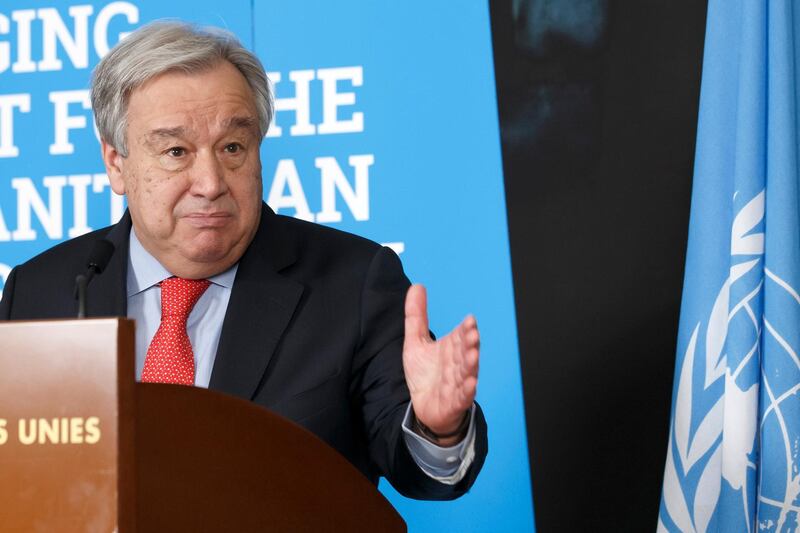"Four years of continuous conflict has turned Yemen into the worst humanitarian crisis of our time." This disheartening statement, made by Lise Grande, the United Nations Humanitarian Co-ordinator for Yemen, set the tone for the largest country appeal in the UN's history earlier this week. In response, the UAE and Saudi Arabia have once again proved their support of Yemen and its people. Both nations have promised $500 million each in humanitarian aid. This comes in addition to $930m pledged by the UAE to Yemen and an additional $70m it has provided to Unicef. These funds are of vital importance to a country in which, according to the World Food Programme's Yemen Country Director, Stephen Anderson, half of the population relies solely on food assistance for survival.
Providing aid for suffering Yemenis is of paramount importance. However, it is only a first step. Once secured, it is imperative that it is distributed fairly and without hindrance. Innocent civilians must be protected and have access to essential services and supplies, whether they are living under the rule of the internationally recognised government of President Abdrabbu Mansur Hadi or trapped in rebel-held territories. UN Secretary-General Antonio Guterres has offered assurances that the sums raised for aid will reach those who need them most and without prejudice. "There will be impartiality, neutrality and independence in the way the distribution is made, which means that [it] will impact both areas controlled by the government and areas controlled by the Houthis," he confirmed on Tuesday.
Since 2015, the Arab coalition has provided critical military support to Mr Hadi's government in the battle against the Iran-backed Houthi insurgents. The UAE and Saudi Arabia are also Yemen's most significant benefactors, contributing around two-thirds of all aid to the country in 2018, according to the UN's Financial Tracking Service. This latest injection of funds is well-timed, as earlier this week aid officials reached the Red Sea Mills in Hodeidah port for the first time in six months.
However, aid can only ever be an interim measure, implemented as part of a broader and more enduring strategy. The Stockholm agreement – a hard-won peace deal reached by representatives of Mr Hadi’s government and the rebels last November in the Swedish capital – has been repeatedly violated by Houthi fighters. It must now be upheld. Providing real relief to the Yemeni people requires concrete action on the ground and a firm commitment to achieving the peace that has eluded their nation for so long.





